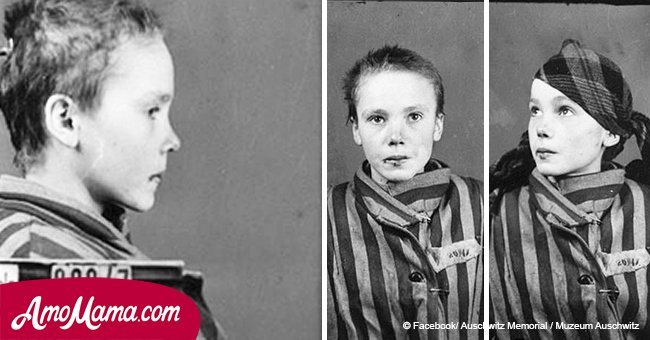
Final pictures of Jewish girl in Auschwitz are even more haunting in color
The colored portrait of a young girl murdered in Auschwitz revealed the heartbreaking reality of the Holocaust.
Metro reported that it took months of research and painstaking work on Photoshop for artist Marina Amaral to recreate a photo of a victim of the Nazi regime.
A girl named Czestawa Kwoka was deported by the Nazis from her home in the Zamosc region of Poland to create a ‘living space’ for them in the east.
Accompanied by her mother and 318 other women, she arrived at Auschwitz on December 13, 1942. She was given the number 26947 and the girl died in the camp on February 18, 1943.
The girl was murdered with a phenol injection into the heart because she was not deemed racially suitable to be ‘Germanised.’ Hundreds of other children suffered a similar fate at Auschwitz.
A testimony by Wilhelm Brasse, a survivor who took her registration picture, says that she was beaten by one of the guards. The encounter left her with a cut lip.
About 1,300,000 people were deported to Auschwitz from 1940 to 1945 which included about 230,000 children.
Marina Amaral put in months of research and long hours in front of a computer to transform the black and white photo from one of the most harrowing periods of history.
As she was working on Czestawa’s photo, she found a red triangle on her overall with a black ‘P’ in its center. This indicated that the 14-year-old was taken at Auschwitz as a political prisoner..
The artist, from Brazil, said that it was easier to relate to people when one sees them in color. But when one sees a photo in black and white, one feels that those events happened only in history books
‘By restoring the colors on her face, I was able to show the colors of the blood and the bruises, which made everything even more real.’
Marina Amaral, Metro, March 14, 2018
The photographer revealed that the young girl was beaten by a guard just before the photo was taken.
She added that those in the concentration camps were human beings who had dreams, ambitions, fears, friends, family, but everything was taken away from them.
Amaral said that though Czestawa was one among millions of others, the expression on her face will remain with her forever. She finds so much fear but also courage at the same time.